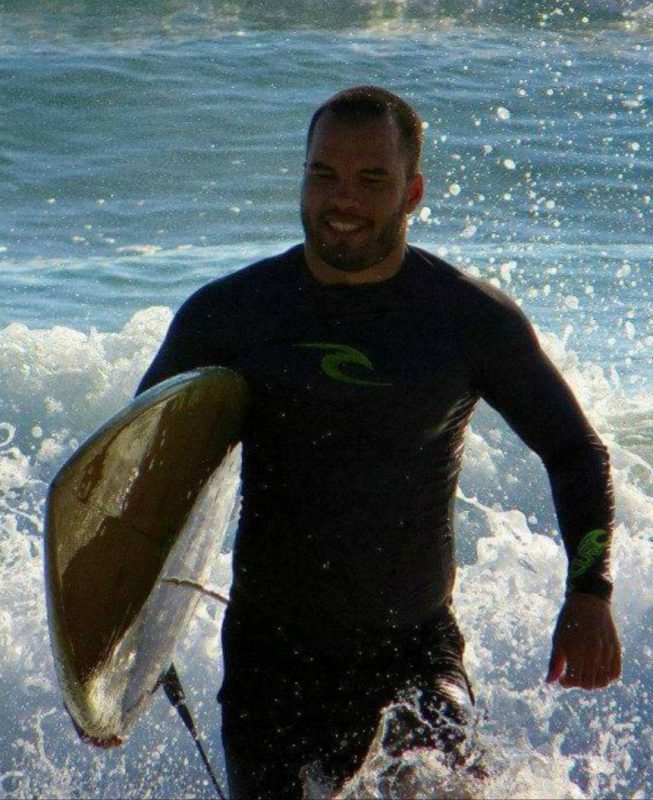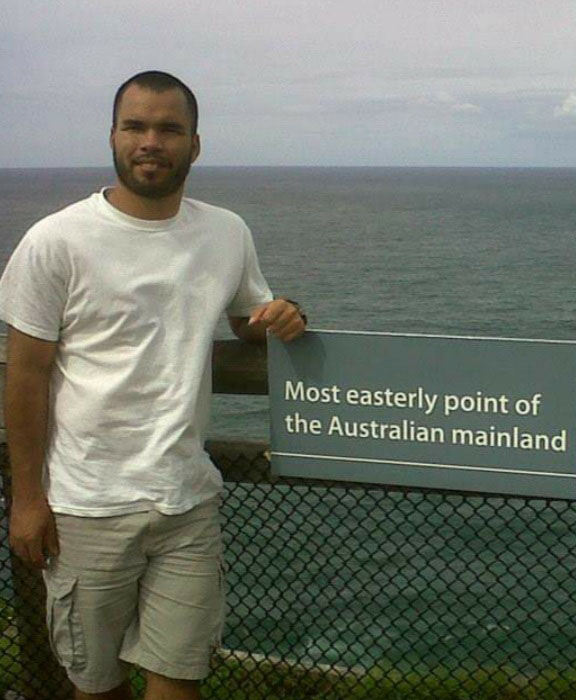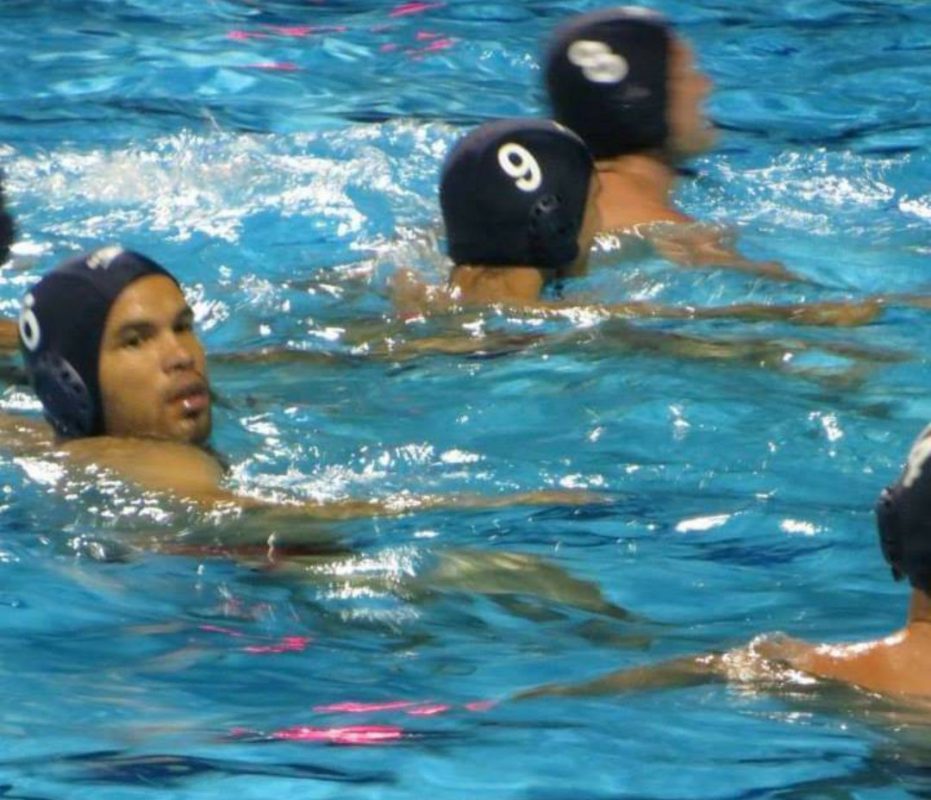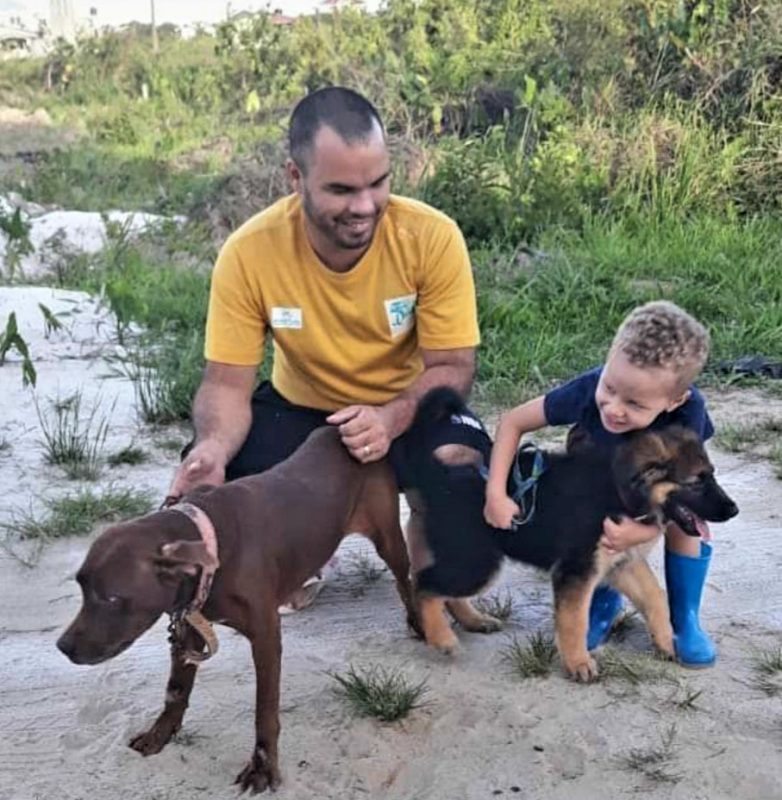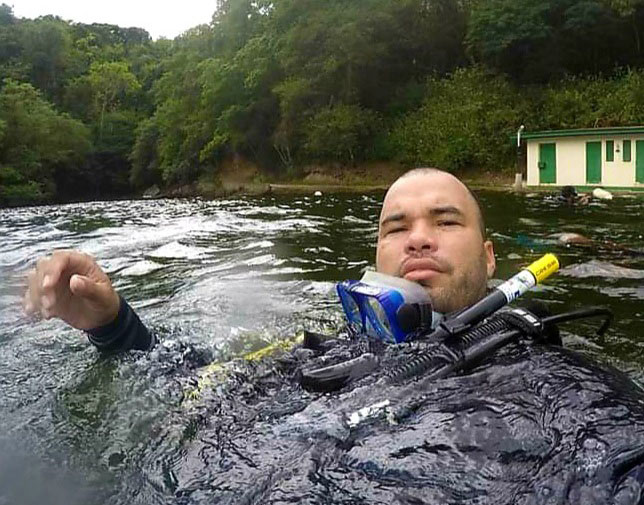Working for three years in the private sector made Nicholas Fraser, head of the Allied Arts Unit (AAU) in the Ministry of Education (MoE) realise how valuable his skills and expertise in education are to the nations’ teachers and children, and that this was where he got job satisfaction.
While working in the private sector, he said, he received several calls from former colleagues in the MoE to assist in certain areas. “One thing led to another and I was offered a post at the ministry. I noted the unit I previously worked for had lost its administrator and there was a need for some leadership there. Even though I was making a whole lot more money at 3T EnerMech than I could ever make at the ministry, my expertise was needed in the wider scheme of things,” he told Stabroek Weekend.
He said that the physical education department he had helped to create was not in good stead neither was the AAU. “The physical education department was my baby. I helped to write the job descriptions for all the positions there. I basically helped to mould what the unit was. I couldn’t stay away and watch things go down the drain,” he said.
“For the short period I worked in the private sector, I found it to be a very fast-paced environment and I appreciated the way they do things. It was a very good experience. I got like a 40 percent increase in salary year on year. In the private sector when they see someone who works well, they incentivize you. I won’t get those increases with the government. The wheels of government grind slower. But in terms of reach, in terms of job satisfaction, seeing national education programmes bear fruit and seeing people helping to develop themselves based on your efforts, I don’t think you get the same satisfaction in the private sector… I missed working as a coach, as a trainer with young people, students and teachers. That demographic is where I get a lot more job satisfaction.”
Now back at the ministry where he had previously worked for 14 years before leaving for the private sector, Fraser has been heading the AAU for nine months now.
He left the ministry, because, he said, “I wasn’t seeing a lot of development at the AAU and I felt somewhat frustrated. I thought it was time for me to try something else.”
About that time, he met a businessman who had a training company in Trinidad and Tobago (TT) that conducted the Basic Offshore Safety and Induction Emergency Training (BOSIET) Course, that everyone working in the oil and gas sector ought to do before they go offshore in a helicopter.
Due to his skills in swimming, diving, water polo and as a club and national swim coach, he was identified to be trained in BOSIET. Fraser went to TT where he did a number of courses at the UWI St Augustine Campus to be certified as a BOSIET trainer, obtain a licence in scuba diving and a lifeguarding certificate.
“That was how I started working with Total Tec Oilfield Services as a health, safety and environmental officer. Six months later they gave me the quality assurance role. After some training in quality assurance and health, safety and environment at Nations University I was the QHSE for Total Tec in the training aspect,” he said.
After some time he was transferred to work with 3T Enermech as an assistant trainer/diver in BOSIET where he stayed for a year.
Marching bands
“For me there are three main things the unit does. Number one we promote the expressive arts countrywide. We have under us five areas – dance, drama, music, physical education and sport with a focus on the ministry’s five priority areas that include governance, performance, efficiency, equity and quality. We do it mainly by identifying gaps and providing upscaling or in-service teacher training to ensure teachers are equipped to effectively teach these subjects” he related.
Another area is the promotion of the arts using competitions, so the unit is one of the bodies in the ministry that coordinates national events such as the recently held Children’s Mashramani Road Parade and children’s national Mashramani competitions.
The unit collaborates with the Guyana Teachers Union on the holding of the national schools’ athletic championships and monitoring events involving schools done by external agencies like Petra and other sports organisations.
The unit has started a marching band programme, with the purchase of eight marching band sets, which will be launched this year. The sets will be distributed to schools.
“We have to collaborate with religious organisations, the army and police that already have the know-how in order to train teachers for the marching bands,” he noted.
The aim is to have a marching band in each region.
“There will be issues just as we have in trying to implement the steelpan programme in the schools; like continuing to train more instructors and maintaining the pans. Every year we try to buy three sets of steelpans and donate them to schools,” he added.
Going forward Fraser is pushing for more staff who could bring some more professionalism to the unit with a range of diverse thinking.
After a number of years without a music teacher, last year the unit employed a music officer who is developing new ways of promoting music in the schools, including a collaboration with a promoter, for students to do music production. At the end of the collaboration, the top five students will receive a full music studio so they can produce music and share their acquired skills with their peers.
Background
Born and bred in Georgetown, Fraser, who is now 41, attended Comenius and Stella Maris primaries and the Bishops’ High School where he wrote the Caribbean Secondary Education Certificate (CSEC) Queen’s College where he was among the first batch of students to sit the Caribbean Advanced Proficiency Examinations (CAPE).
Fraser started swimming at six years old. By ten, he had already swum the Berbice River from Rosignol to New Amsterdam and twice across the Demerara River. He also swam across the Demerara River from Vreed-en-Hoop to Stabroek Wharf just after his tenth birthday.
He took part in triathlons and in eight consecutive national schools’ athletic, swimming and cycling championships, representing Stella Maris Primary, the Bishops’ High School, Queen’s College and the North Georgetown District.
Fraser represented Guyana at the Carifta, Inter-Guiana, and Goodwill games. He and his sister Dee-Ann were on the national team that represented Guyana in the first Goodwill Games in 1995.
In April 2007, before he wrote the May/June CSEC exams at Bishops’ he travelled to French Guiana to represent Guyana in the Inter-Guiana Games. Then two weeks before the CSEC exams he travelled to Brazil for the South American Games.
“My headmistress Mrs Maureen Massiah was not happy about me taking part in the South American Games so close to the exams but I managed my time well and I studied while I travelled,” he recalled.
Fraser wrote seven subjects. When the CSEC results were out he joined the line to the teacher who was distributing slips, only to find that she did not have his. He was sent to the headmistress’s office.
“I went to her office. She sat there with a straight face. She picked up my slip, looked at me and then looked at the slip again before saying that she warned me about going on those trips … ,” he recalled. “She then smiled. She congratulated me saying I had done very well. I had obtained four grade ones and three grade twos. I was relieved because the way she started the conversation I thought I had done badly and she had pulled my results slip to scold me.”
After CSEC, he went on to Queen’s College to write Accounts Units I and II at the CAPE because he wanted to pursue a career in business. “I did five subjects and passed all including Accounts Units I and II in one year,” he related.
After writing CAPE he was admitted to the University of Guyana (UG) to study computer science and accounting. He spent two weeks at UG and left after he received a scholarship to study physical education and sport in Cuba. Then Minister of Culture, Youth and Sport Gail Teixeira informed him about the availability of the scholarship by the Cuban government, but the Guyana government was unable to provide funding for travel and living expenses in Cuba. Two students from Guyana joined the programme but only Fraser completed it. He went to Cuba in September 2000 at 17 years old for the five-year bachelor’s degree programme.
“It was quite an experience in Cuba, not knowing the Spanish language,” he recalled. “When I got there it was straight into the course. It was the first year that Cuba’s international university for sport science studies had started up. We were the first batch of about 500 students from 72 countries.”
He had missed the eight-month programme for non-Spanish speakers and was thrown into the programme without knowing Spanish. He had opted out of doing Spanish at the first opportunity he got in high school when he was in third form. Learning and adapting to the language, he said, was difficult for the first two years.
In 2003 and in ensuing years, a number of Guyanese students were given scholarships to study in Cuba, particularly in medicine.
“Prior to their arrival in 2003, there were about eight Guyanese students on the island,” he said.
In Cuba, he worked with students along with the Guyana Embassy in helping them to adapt to their new environment. They formed the Guyanese Students Association and Fraser was its vice president for the first year and then two years later he became its president.
In his penultimate year he was asked if he would like to be brought onto the scholarship programme. “With a year left,” he said, “it made no sense. It meant I would have had to sign a contract with the government.”
Fraser did his master’s degree in sports management from January 2013 to December 2014 at Griffith University in Australia through an Australia Award Scholarship. He had previously done a course in sport management through the Guyana Government at the University of Canberra, Australia and was invited to apply for the scholarship.
“I graduated with first class honours. I did it in English so that was a bit easier than in Cuba,” he stated.
He had graduated from the Cuban programme with a 4.68 GPA out of 5.0. If he had a 4.75 GPA he would have graduated with first class honours. In Australia he had a high enough GPA to get an award for academic excellence and to graduate with first class honours.
With the help of his tutor, his thesis on Guyanese sports people, was published in an academic journal.
MoE
His first job, when he returned to Guyana from Cuba was with the National Sports Commission (NSC) where he worked for a year and a half on coaching development and closely with his Surinamese and French Guianese counterparts to organise the Inter-Guiana Games. He also helped in researching the first 50 sport awardees for the NSC’s 50th national sports awards anniversary.
He then moved to the National Centre for Educational Resource Development (NCERD) as a senior subject specialist for physical education and sport when the education ministry was introducing physical education and sport as compulsory subjects in the primary and secondary school systems.
At NCERD he worked on developing physical education material. “I worked with some really good teachers there and we had a good set of work done on the curriculum,” he said. “At the same time, students were also starting to write physical education at CSEC so we linked the work we were doing to the national curriculum and the CSEC syllabus. We worked mainly in teacher training, travelling the country and going to primary and secondary schools trying to promote different sports, different physical education activities and trying to get students to write the subject.”
The first two schools that wrote physical education were St Stanislaus College and Tutorial Academy in Berbice.
“Within a few years we had 32 schools writing physical education. We did a pretty good job in getting teachers trained in different aspects of physical education and increasing the number of students writing the subject. It required each student to do three sports. Now it is written countrywide,” he said. Students are also now writing physical education at the level of CAPE. Fraser worked with the first panel that revised the CSEC physical education syllabus.
“I worked with the Caribbean Examinations Council (CXC) on that panel to add sports and to review the content in physical education and sport. I was on the initial panel that put together the physical education syllabus for CAPE. In 2019, we reviewed that CAPE syllabus and one of the things that I was pushing at the time was to get archery on that syllabus. I worked with the archery associations and some other sports associations to also get cycling, swimming and water polo on the CSEC and CAPE syllabi.
“We are expanding the number of sports. We consider the different needs to put to CXC from the PE teachers and other stakeholders. Working on curriculum development, and on programme development are things I really enjoy doing.”
Once physical education and sport were introduced from grades one to six, Fraser was transferred to the AAU in 2008.
“After Cuba, I started travelling with national teams. The biggest event I went to was the World Swim Championships in Rome in 2009. In Australia, I played with the university’s water polo team and I competed as a swimmer while studying at university and I also competed as a water polo player in Australia. I also represented my university for the two years at the Australian university games. On return from Australia, I eased off coaching and I pushed for water polo to play in Guyana and to get onto the CXC syllabi. I was successful in getting water polo on the CXC syllabi but I wasn’t successful in getting water polo affiliated with the Guyana Amateur Swimming Association. Until we had the National Aquatic Centre, we didn’t have a pool that could accommodate water polo,” he noted.
When he returned from Australia he approached UG to create a course for sports people. “The idea was to have a three-pronged degree programme where students will specialise in sport science. I had some really good meetings with UG in 2015 up to 2017 but I don’t think we got it off to a full-fledged degree programme,” he added.
In 2018 after he lost hope with UG, the UWI Open Campus asked him to help draft its sports programme. “From 2019 up till now I still work for the UWI Open Campus. I help them to write course outlines for their coaching programme,” he said.
Once he was finished with the outlines he was asked to lecture.
He started lecturing in 2020 during the Covid-19 pandemic with a few courses and still does a course or two each semester. This semester he is doing a course in sports practicum for sport coaches and another, sports leadership for the sport management degree programme.

